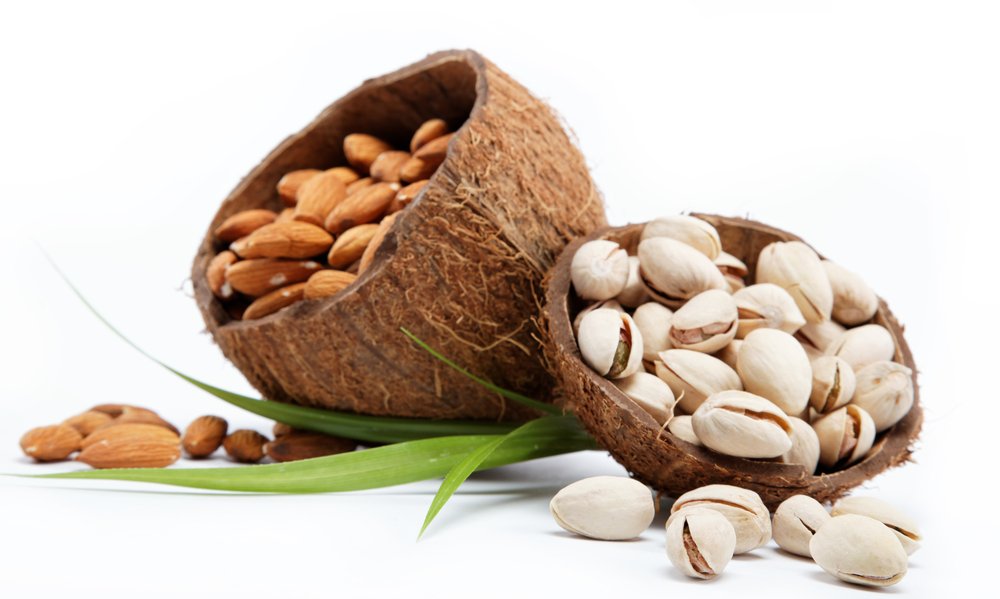It's OK to Go a Little Nuts: Some May Have Fewer Calories Than Thought

Get the world’s most fascinating discoveries delivered straight to your inbox.
You are now subscribed
Your newsletter sign-up was successful
Want to add more newsletters?

Delivered Daily
Daily Newsletter
Sign up for the latest discoveries, groundbreaking research and fascinating breakthroughs that impact you and the wider world direct to your inbox.

Once a week
Life's Little Mysteries
Feed your curiosity with an exclusive mystery every week, solved with science and delivered direct to your inbox before it's seen anywhere else.

Once a week
How It Works
Sign up to our free science & technology newsletter for your weekly fix of fascinating articles, quick quizzes, amazing images, and more

Delivered daily
Space.com Newsletter
Breaking space news, the latest updates on rocket launches, skywatching events and more!

Once a month
Watch This Space
Sign up to our monthly entertainment newsletter to keep up with all our coverage of the latest sci-fi and space movies, tv shows, games and books.

Once a week
Night Sky This Week
Discover this week's must-see night sky events, moon phases, and stunning astrophotos. Sign up for our skywatching newsletter and explore the universe with us!
Join the club
Get full access to premium articles, exclusive features and a growing list of member rewards.
Almonds are among my favorite snack foods. Not only are they super convenient (no prep time whatsoever), but they're also rich in fiber, vitamins, and monounsaturated fatty acids.
Additionally, there is evidence that almonds have cholesterol-lowering effects, according to a 2011 study in the journal Nutrition, Metabolism and Cardiovascular Diseases.
So, there are plenty of reasons to snack on almonds, but also one reason why you shouldn't go hog wild on the nuts: calorie count. Fortunately, there is some good news on this front — almonds may actually have about 30 percent fewer calories than thought, according to a study published in July in the American Journal of Clinical Nutrition. Previous estimates suggested that one serving (about an ounce) of almonds had 170 calories, but the new study, which was partly funded by the industry group Almond Board of California, found that the nuts contain about 130 calories per serving.
A similar study published earlier this year by the same researchers found that pistachios have about 5 percent fewer calories than previously thought. Researchers calculate the amount of energy in food (as measured in calories) in food by a method called the Atwater factor, but these studies are now suggesting that this formula may not be accurate for every food, and especially for nuts.
In the almond study, researchers analyzed the feces and urine of people who ate different quantities of nuts. It sounds pretty gross, but what they found was surprising: people who ate more nuts had more fat in their poop. That means their bodies aren't absorbing all the fat in the nut — some of it passed right through. So, there's a disconnect between the energy content of the nut, and what our bodies use, the researchers concluded.
Here are some tips for enjoying almonds on a regular basis.
- You can now eat about 20 percent more! One serving of almonds is about 20 to 25 nuts. That serving was calculated by using the Atwater data, so you can comfortably add four or five nuts to your daily quota. If you don't count, don't worry. It's about a handful of nuts.
- Chew your almonds well. The almond's cell walls protect all the great nutrients inside; chewing helps all that good stuff break free so it can be used by your body.
- Try making your own almond milk. Eating almonds every single day may get a little boring. You can get a lot of the same benefits from drinking almond milk – especially if it's homemade. Place about a cup and a half of soaked almonds into a blender, with about four cups of milk. Blend for about two minutes. Add vanilla extract and honey for flavor, if you'd like it sweet. Strain the chunks out with cheesecloth and you should end up with about five cups of almond milk.
Healthy Bites appears on MyHealthNewsDaily on Wednesdays. Deborah Herlax Enos is a certified nutritionist and a health coach and weight loss expert in the Seattle area with more than 20 years of experience. Read more tips on her blog, Health in a Hurry!
Get the world’s most fascinating discoveries delivered straight to your inbox.
 Live Science Plus
Live Science Plus












